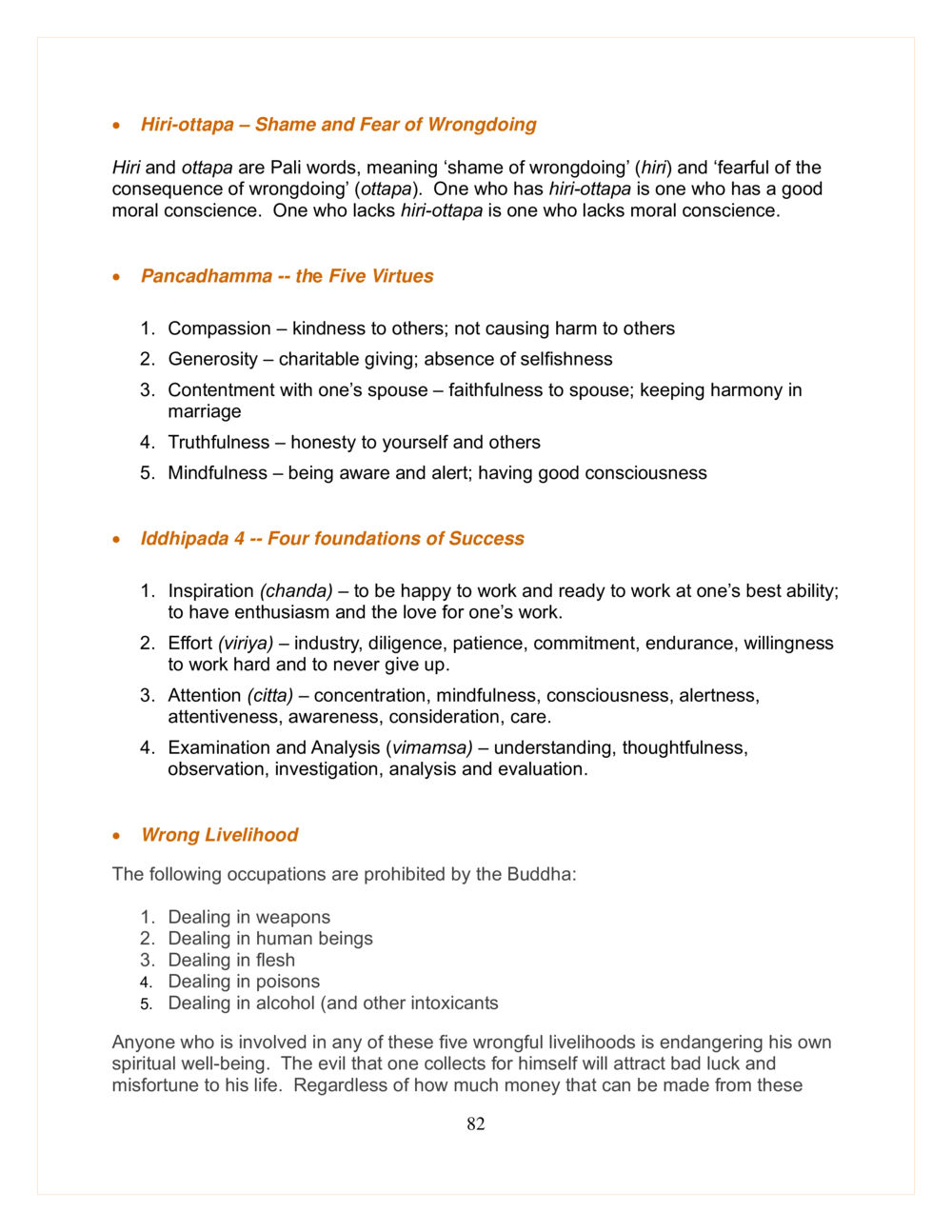Hiri-Ottapa: Understanding Shame and Fear of Wrongdoing : หน้า 82/115
DMC Translor’s handbook : หน้า 82/115 Explore the concepts of Hiri and Ottapa, highlighting the importance of moral conscience, as well as the Five Virtues and Four Foundations of Success in Buddhist teachings.
0 ครั้ง

สรุปเนื้อหา
Hiri and Ottapa are pivotal concepts in Buddhism, representing the shame of wrongdoing and the fear of its consequences. Together, they foster a good moral conscience. Individuals devoid of these traits tend to lack ethical awareness. This text delves into the Five Virtues: compassion, generosity, contentment, truthfulness, and mindfulness, essential for moral living. Furthermore, it discusses the Four Foundations of Success: inspiration, effort, attention, and examination, vital for achieving goals while maintaining ethical integrity. The text also warns against five prohibited livelihoods, including dealing in weapons, human beings, and intoxicants, which jeopardize spiritual well-being and attract misfortune. For more, visit dmc.tv.
หัวข้อประเด็น
-Hiri and Ottapa
-Five Virtues
-Four Foundations of Success
-Wrong Livelihoods
-Buddhist Ethics



















































































































